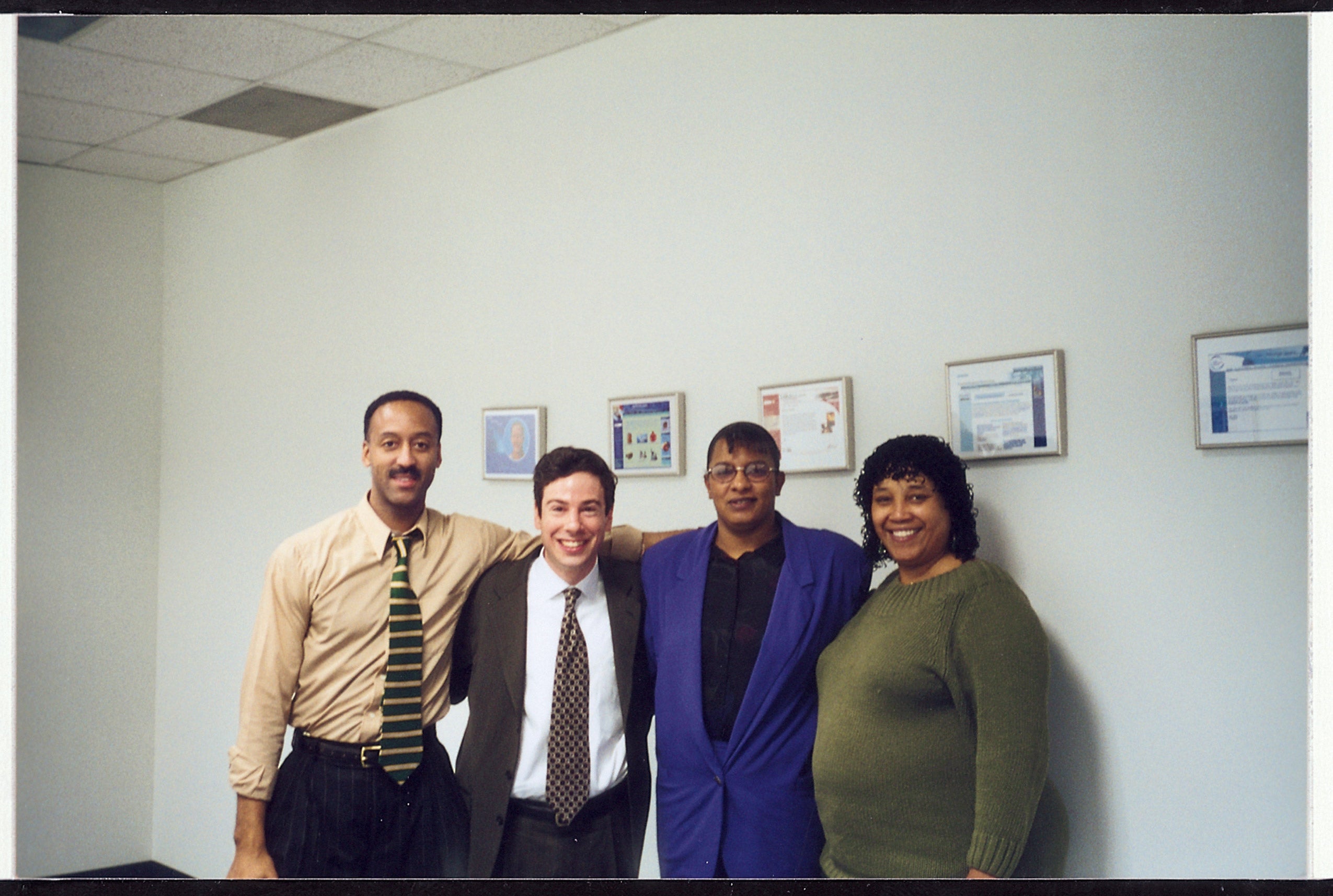This summer a group of Baltimore inner-city residents got technical jobs at an Internet company, thanks to their own determination but also to an idea Michael Rosenbaum ’98 developed while a student at HLS.
“I saw there were technology companies whose growth was being slowed by the fact that they couldn’t find good workers,” said Rosenbaum. “And at the same time there were all these really smart motivated folks in distressed urban communities who weren’t getting access to the job market.”
After graduating, Rosenbaum took his plan for economic and workforce development to Baltimore with lots of advice and encouragement from HLS faculty, including Professors Martha Minow, Charles Ogletree Jr. ’78, and Steven Shavell. The Office of Public Interest Advising, he said, also provided him with invaluable counseling, and a Kaufman fellowship gave him “a little money to start out with.”
Two years later Rosenbaum and three friends launched Catalyst Associates, conceived as a nonprofit that would bring new technology companies to the city. CitySoft, a Boston software company, was the first to sign up and open an office in Baltimore. Catalyst worked with CitySoft to help develop the training program, which consisted of formal classes on everything from Web design to workplace etiquette.
Eventually Catalyst was overwhelmed by the demand for its training and recruiting services, so the company decided to concentrate on “identifying the right people to do the job and giving them the skills to do it,” Rosenbaum said.
In December Catalyst Associates became Catalyst Solutions, a for-profit company that focuses on recruiting, training, and placing employees. That month the company raised half a million dollars in equity financing, and it has since run two more training sessions for inner-city residents to work in Baltimore-based e-commerce solution companies.
Rosenbaum says Catalyst is growing rapidly and hopes to expand services to at least one other city by the end of 2001. By that date, he estimates, the company will have trained as many as 100 new technology employees in the Baltimore area.
The most difficult part of the training is not the teaching of technical skills or the honing of motivation, he says. “People who succeed in our program have an enormous amount of drive and determination.
“The ethos of the technology industry, even with slowing financial markets, is that there are no limits. The challenge is to communicate this to people who’ve had so many doors slammed in their faces. The main way we do that is by showing folks respect. People respond very well.”
